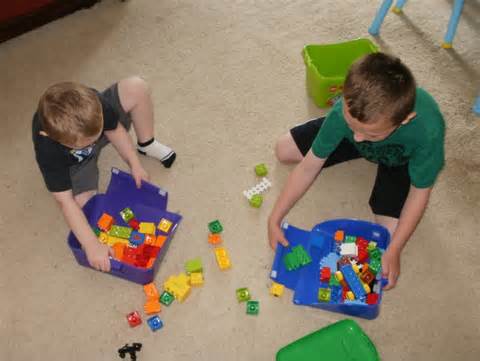Phew... It's normal!
I had a phone consult with a mom the other day. She was concerned about her son and his behaviors. We talked about each one of them in detail only to discover that what he was doing was not "naughty", in any way, but developmentally appropriate and normal at his age.
Yes, your 3 year old is…testing boundaries, saying no..a lot, throwing tantrums, saying a lot of “I do it” in one moment and “carry me” the next. This is normal!
Hearing this was very reassuring to this mom, and then we were able to speak about how she could support her son’s need for independence while still having clear boundaries for him.
This got me thinking... how many other parents are struggling with the same challenges, thinking their child’s behaviour needs to be “stopped, or changed” but not realizing that it may be developmentally appropriate?
According to the research I read, about half of parents believe that children are capable of self-control and other developmental milestones much earlier than they actually are.
Here are 3 behaviours that are just your kid being a kid…
- Kids don’t have a lot of control over impulses, especially in toddler hood. The part of the brain (prefrontal cortex) that where we learn to control our impulses doesn't fully mature until we reach the age of 25.
- They can't curb their big feelings. We as adults have learned to do that, we can suppress big feelings, hide them, pretend we are okay when we are actually hurt on the inside. We have developed all kinds of compensation patterns and ways of defending our tender hearts. Kids just let it out, we can learn from their unfettered emotions!
- Kids are hard wired to play...and move their bodies. This could look to you like they are misbehaving by constantly moving when you are trying to put their shoes on, or smearing their breakfast all over their face. Truth is, they are just being kids....They have a developmental need for unstructured play (which is how our brains learn), and its how they make sense of the world and integrate their experiences.
So, the next time your kid throws themselves on the floor with a meltdown over something seemingly insignificant in your eyes, or runs away from you wanting a game of chase when you are trying to brush their teeth, just remember.."they are not being naughty, or bratty", they are fulfilling nature's plan, and that is to be a kid and make everything a game.
Try joining them in their play, you may just connect with them, and it will probably make those tasks that need to get done happen a little easier!






